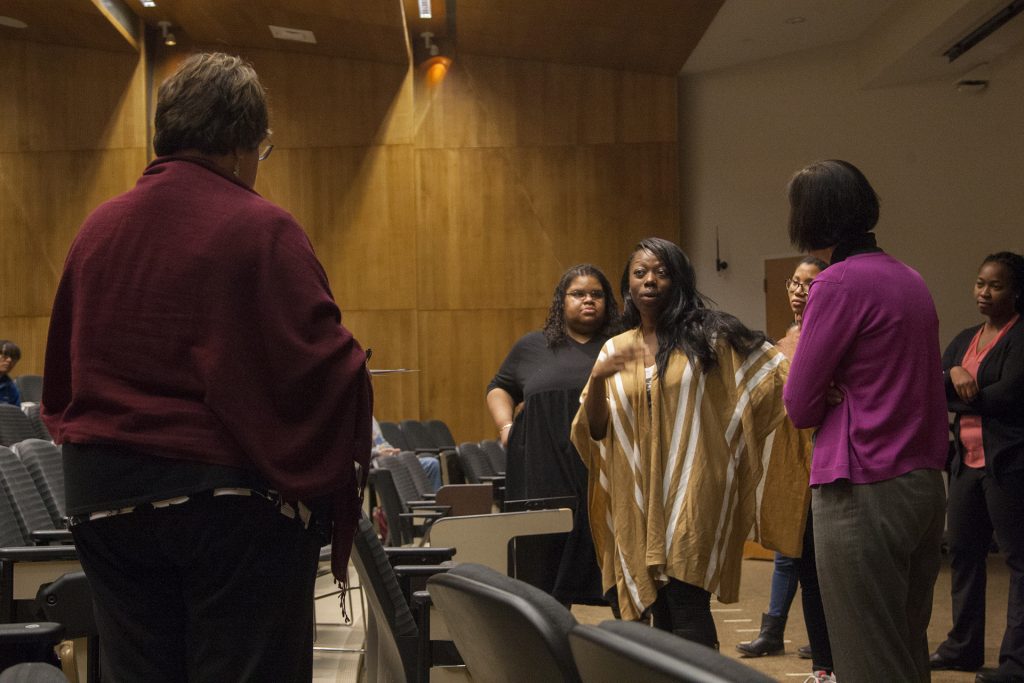The University of Iowa College of Public Health Diversity and Inclusion Committee hosted a viewing of Dr. Martin Luther King Jr.’s famous “I Have a Dream” speech as part of the 2018 King Celebration of Human Rights Week.
The event took place on Wednesday afternoon in the Callaghan Auditorium of the College of Public Health building. Following the speech, selected volunteers were asked to participate in a “Privilege Walk.” The volunteers took to the stage and took steps backwards or forwards in response to question relating to experiences they had encountered in their lives.
Questions mainly revolved around race, sexual orientation, and gender and ranged from whether the individuals had had school instructors who “looked like” them to whether they could walk outside at night without the fear of being sexually assaulted.
Billie Townsend, who worked at the college for four years as a member of the National Alliance for Doctoral Studies in the Mathematical Sciences, introduced the event by giving a speech that detailed the many facets of King’s childhood and careers, both as a civil-rights activist and a Baptist minister, to a crowd largely composed of public-health students and faculty.
“Dr. King did so much in his short period of time,” Townsend said. “And those are the things that set the background for where we are now [in regards to] civil rights and voting rights.”
Tanya Uden-Holman moderated much of the event.
“The purpose is not to blame anyone for having more power or privilege or for receiving more help in achieving goals,” she said. “But to have an opportunity to identify both obstacles and benefits experienced in our lives. So, I really view it as an opportunity for introspection and growth not only for the participants but also for those in the audience.”
Geneva Wilson, a third-year Ph.D. student in the Epidemiology Department who helped put together event, defined privilege as “anything that can be used as an advantage for some and a disadvantage for others.” She gave one example as being able-bodied as compared with being physically disabled.
“There are so many different ways it can appear,” said Chelsea Hicks, a first-year Ph.D. student studying occupational and environmental health and an event organizer. “So that’s what makes it a difficult concept to understand.”
She said that the concept appeared differently to various geographical and cultural groups.
The Privilege Walk had been implemented before, in 2016, also with 15 participants.
“We’d gotten a good reception and decided we wanted to redo that event since it had been a couple years,” Wilson said. “… and having the [walk and the speech] together in one event would pair well.”



